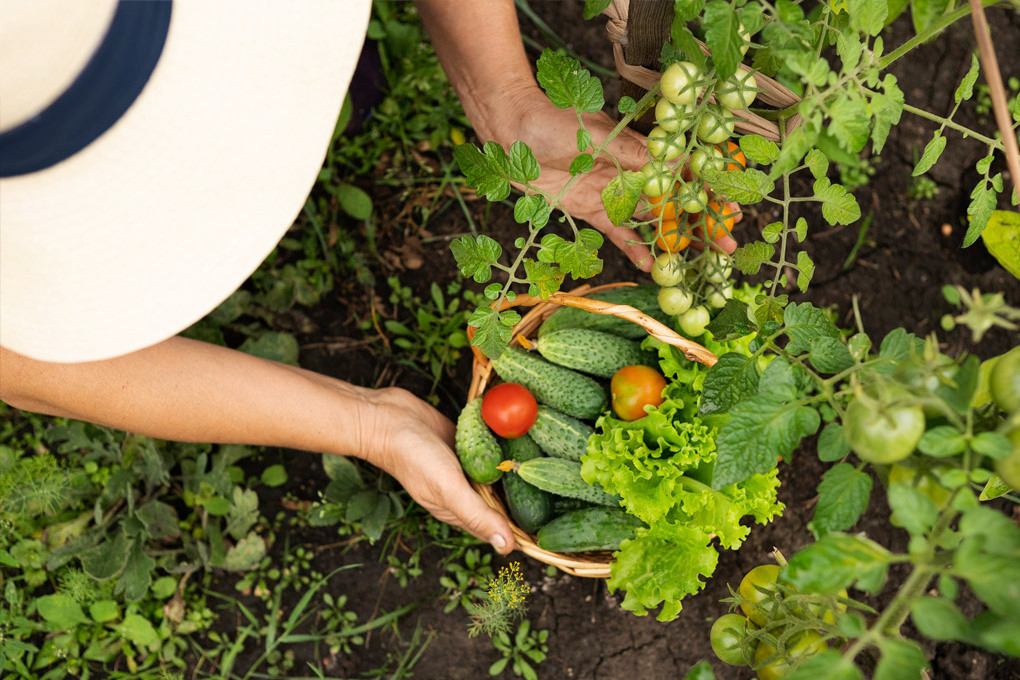
Growing Your Own Food: A Pathway to Savings and Wellness
Posted by Sunshine Chapman on Aug 12th 2024
Understanding the Potential Savings
Gardening can indeed save you money, but it requires careful planning and management to avoid excessive costs. It's easy to spend a lot on gardening supplies, from tools and equipment to fertilizers and pesticides. William Alexander’s book, "The $64 Tomato," humorously illustrates how gardening expenses can spiral out of control, leading to high costs per vegetable. To ensure your garden saves money, limiting expenditures and maximizing yields is crucial.
Key Factors for a Cost-Effective Garden
Location and Conditions: Choose a sunny spot with well-drained soil and access to water. Most vegetables thrive in full sun and need a reliable water source.
Seasonal Planting: Sync your planting with your local climate to grow both cool and warm-season vegetables. Cool-season crops like carrots, beets, and lettuce are planted in early spring, while warm-season crops such as tomatoes, peppers, and squash are planted after the last frost. Your local Extension Center can provide valuable information on what crops to grow each season.
Succession Planting: Maximize space by planting multiple crops in the same area throughout the growing season. Techniques like interplanting and companion planting can also help use garden space efficiently, boosting yields and savings.
Selecting the Right Foods
To get the most bang for your buck, focus on vegetables that are expensive to buy or those you consume frequently. Tomatoes, melons, beans, beets, onions, spinach, broccoli, carrots, summer squash, cucumbers, potatoes, lettuce, peas, and Swiss chard offer substantial returns on your investment.
Personal Preference: Grow vegetables you and your family enjoy eating. You're more likely to take care of and consume these crops, ensuring your efforts don't go to waste.
Storage and Preservation: Opt for vegetables that can be stored for long periods or easily preserved. Potatoes, onions, sweet potatoes, and winter squash can last several months. Vegetables like beans, tomatoes, and cucumbers can be canned or frozen, allowing you to enjoy your harvest year-round.
Practical Tips for Saving Money
Plan and Research: Before planting, sketch a garden plan and research the requirements for each crop. Consult resources like local county extension offices or gardening publications for guidance.
Reduce Input Costs: Minimize expenses by collecting rainwater for irrigation and using compost and well-rotted manure to enrich the soil. Employ Integrated Pest Management techniques to reduce reliance on pesticides. Start with high-quality seeds and find ways to reuse materials like containers and stakes.
Start Small: If you're new to gardening, begin with a few types of vegetables to avoid becoming overwhelmed. As you gain confidence and experience, gradually expand your garden.
Community and Sharing: Engage with neighbors and local gardening communities. Sharing tips, tools, and even surplus produce can enhance your gardening experience and reduce costs.
Beyond Financial Savings
While saving money is a significant benefit, gardening offers much more. It provides a sense of food security and confidence, knowing exactly how your food was grown and what chemicals were used. Gardening also eliminates the need for resource-intensive transportation, reducing your carbon footprint.
Moreover, gardening is a fantastic form of physical exercise, promoting overall health. Fresh produce from your garden is incredibly nutritious, contributing to a healthier diet. The mental health benefits are equally important; gardening is a relaxing and rewarding activity that can reduce stress and increase happiness.
Conclusion
Growing your own food can be a rewarding endeavor that saves you money and offers numerous other benefits. By planning carefully, choosing the right crops, and managing costs effectively, you can create a thriving garden that supports your financial and personal well-being. So, start small, enjoy the process, and watch as your garden transforms your life—and your pocketbook.